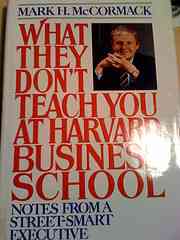Larry Chiang identifies the best mentors in any field. At the National Speakers Association, he crashed the Cigar PEG where he infiltrated a vein of awesomeness. One secret nugget of knowledge is now your morsel of mentorship. Here are “Things You Can Learn From a Comedian“.
Edited By Larry Chiang
By Avish Prashar
Comedians seem an unlikely source to offer business advice.
Heck, a lot of them never graduated college, much less business school. Yet there are many principles from the art and science of comedy that any business professional would do well to pay attention to.
Here are 5 things you can learn from a comedian about business:
1) Fun matters.
You can not perform comedy without having fun. I’ve seen people try, and it’s not a pretty sight.
Picture your stereotypical MBA. Now try to picture one without a stick up his or her ass. Can‘t do it right? I’m not saying that all MBAs are humorless people, but for some reason we all envision high powered business executives as serious minded folk who’s only idea of a good time is playing squash at 6AM with a client.
People perform their best when they are enjoying themselves. Having fun increases energy, decreases stress, opens up creativity, leads to that elusive sense of “life balance,” and frankly, makes life a whole lot more worthwhile.
2) Fear of failure leads to failure.
Performing comedy is one of the more nerve wracking forms of public speaking there is. What separates people who do well and make it from those who don’t is that the successful comics accept that they might fail, then suck it up, forget about it, and put 100% of their attention on their performance. The ones who bomb let their nerves take over and as a result look and act very unfunny. Not a good thing for a comedian to do.
In the “real” world, failure has very real consequences. The people who excel are the ones who understand risk, accept the possibility of failure, and, once they have committed to a course of action, stop obsessing about messing up and instead focus on the task at hand.
3) Control what you can, let go of the rest.
As a comic, there are many things you can pay attention to: the audience, the guy who went on before you, the girl going on after you, the room set up, the temperature, etc. But there is only ever one thing you can control: what you say and do. You can prepare for some of these things, but stressing over things that you have no control of is a fast track to failure.
Similarly, a lot of people in the professional world waste a lot of time and energy (and a lot of other people’s time and energy) stressing over things they can not control. Let it go, move on, and take action on the things you can actually influence right now.
4) There’s an audience involved.
For a comedian, there is nothing worse than an audience that is not paying attention and talking through your set. Ok, there is: an audience that is paying attention but not laughing. It doesn’t matter how funny you think your material is; if the audience doesn’t care and like it, you fail.
The same is true in business. You may love your product, service, or marketing idea. But if the customer doesn’t care and like it, you‘re wasting your time and money.
5) If it’s too obvious, it’s not noteworthy.
Audiences don’t laugh if they see the punch line coming. As a comedian, your job is to come up with ideas that are make sense but that people haven’t thought of before. Basically, you are paid and rewarded for your own unique point of view.
Businesses need noteworthy offerings. If your product or service is too obvious, then people will perceive it as a commodity. To stand out, you need to provide your own unique spin that makes sense but that people haven’t seen before.
The next time you are watching a comedian you like, take a second to think about what he or she is really doing well and what you might be able to learn from it. You just may be surprised…
****
Avish Parashar is the Motivational Smart Ass. As a speaker and on his blog, he shows people how to be more successful by observing and making fun of the stupid things we all do (yes, including himself). For more Motivational Smart Assery, check out, www.MotivationalSmartAss.com
| If you liked this, you may also check: |
This post was edited by Larry Chiang. If he missed something, email larry @larrychiang dot com and include your cell in the subject line.

Larry Chiang is CEO of a credit card marketing company and guest starred in a video game.
Read about the granular details in how stuff gets done in his Business Week column on “What They Don’t Teach You at Business School“. Text or call him during office hours 11:11am or 11:11pm PST +/-11 minutes at 650-283-8008.



 Larry speaks on stuff they don't teach in B-school to help you get street smart in doing business. In college, he started a business that helps college students with their FICO score. He loves entrepreneurs, Ben and Jerry's ice cream and after parties. You can reach him at:
Larry speaks on stuff they don't teach in B-school to help you get street smart in doing business. In college, he started a business that helps college students with their FICO score. He loves entrepreneurs, Ben and Jerry's ice cream and after parties. You can reach him at:




